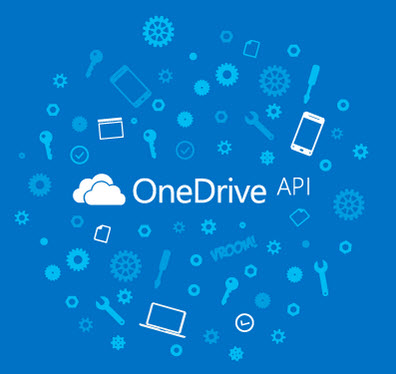Microsoft ups its push to get developers onboard with its cloud-service APIs

Last fall, Microsoft CEO Satya Nadella made a bold (and to some, a rather cryptic) statement. He said he considered Microsoft's most valuable and strategic application programming interface (API) to be Office 365.

The same argument can be made about other Microsoft cloud services, such as OneDrive. By encouraging developers to use the new OneDrive API in writing their Windows, iOS and/or Android apps, Microsoft is hoping to get more users hooked into its cloud-storage platform and related services. (Microsoft teams inside the company are starting to use this same OneDrive API, too, officials said in a February 24 blog post announcing availability of the interface.)
At its Ignite conference in early May, Microsoft will be making more announcements around the extensibility of Office 365 APIs, according to hints in various session descriptions already posted to the site.
Microsoft officials are on tap to showcase how developers can use the Office 365 in building mobile device applications that run not just on Windows and Windows Phone, but also on iOS and Android devices. By using these APIs, developers get access to Azure Active Directory Users and Groups, Files (OneDrive and OneDrive for Business), Mail, Calendar, Contacts and Sites.
And that's not even an exhaustive list of what is part of the Office 365 API toolbox. There are Yammer enterprise social networking APIs available to developers. There are Skype for Business (a k a Lync) unified communications APIs.
Developers can use the Video API set in Office 365 to push and pull content in and out of Office 365. There will be similar APIs for the other Office 365 "NextGen" People and Knowledge Management portals that Microsoft is building. And Microsoft also is opening up the Office Graph machine-learning service via a Graph API.
A year ago, Microsoft released a set of tools for developers wanting to build apps for the Office Store that were codenamed "Napa." Just this week, Microsoft added C# support to the API Sandbox for Office 365.
There may be additional tools coming. A few Office 365 users over the past year have noticed something codenamed "Alchemy" popping up in their dashboards.
According to information about Alchemy (which Microsoft officials since removed from the support forums), "Alchemy App is a web service used for the connection between SharePoint Online and Visual Studio code."
Microsoft is evangelizing other of its cloud-service APIs to app and service developers, too. On February 24, Microsoft announced availability to developers of a "new" OneDrive API.
The OneDrive API "allows developers to integrate OneDrive into their apps to store and manage user data across all major platforms, including Windows, the web, iOS, and Android. With this new RESTful API, you can build on a scalable cloud storage platform that reaches users across the entire family of Microsoft consumer services," according to the blog post announcing availability.
It's worth noting that this isn't the first time Microsoft made its cloud storage API accessible to devs. Back in 2012, Microsoft was touting the availability of OneDrive (then called SkyDrive) APIs to developers. The pitch: By integrating SkyDrive into your apps, "your users can read and write documents, photos and other files on their SkyDrive."
Microsoft also will be making more Outlook and OWA APIs available to third parties. As noted in the Ignite session list, the "Apps for Outlook platform" has been available for two years and "Compose Apps" was released last year. "The extensibility platform is one of the key investments across all our mail clients," officials noted in the session description on Outlook extensibility.Microsoft also is expected to try to get more developers to get onboard with the OneNote note-taking API.
This list of cloud-services that Microsoft is opening up to developers maps nicely to the four Office "hubs" that Microsoft is trying to make the center of its Digital Life + Work universe.
As I blogged last year, Microsoft's Applications and Services unit is working on building a common "substrate" which "understands context and reacts to changes in the world, proactively providing critical information at the right time and place." The mission of the team that is surfacing substrate information is to "bring people back to four hub services: OneDrive, OneNote, Outlook.com and Skype."
By making its cloud-service APIs open, Microsoft is hoping to lure developers to build apps and services that ultimately will help contribute to Microsoft's bottom line.